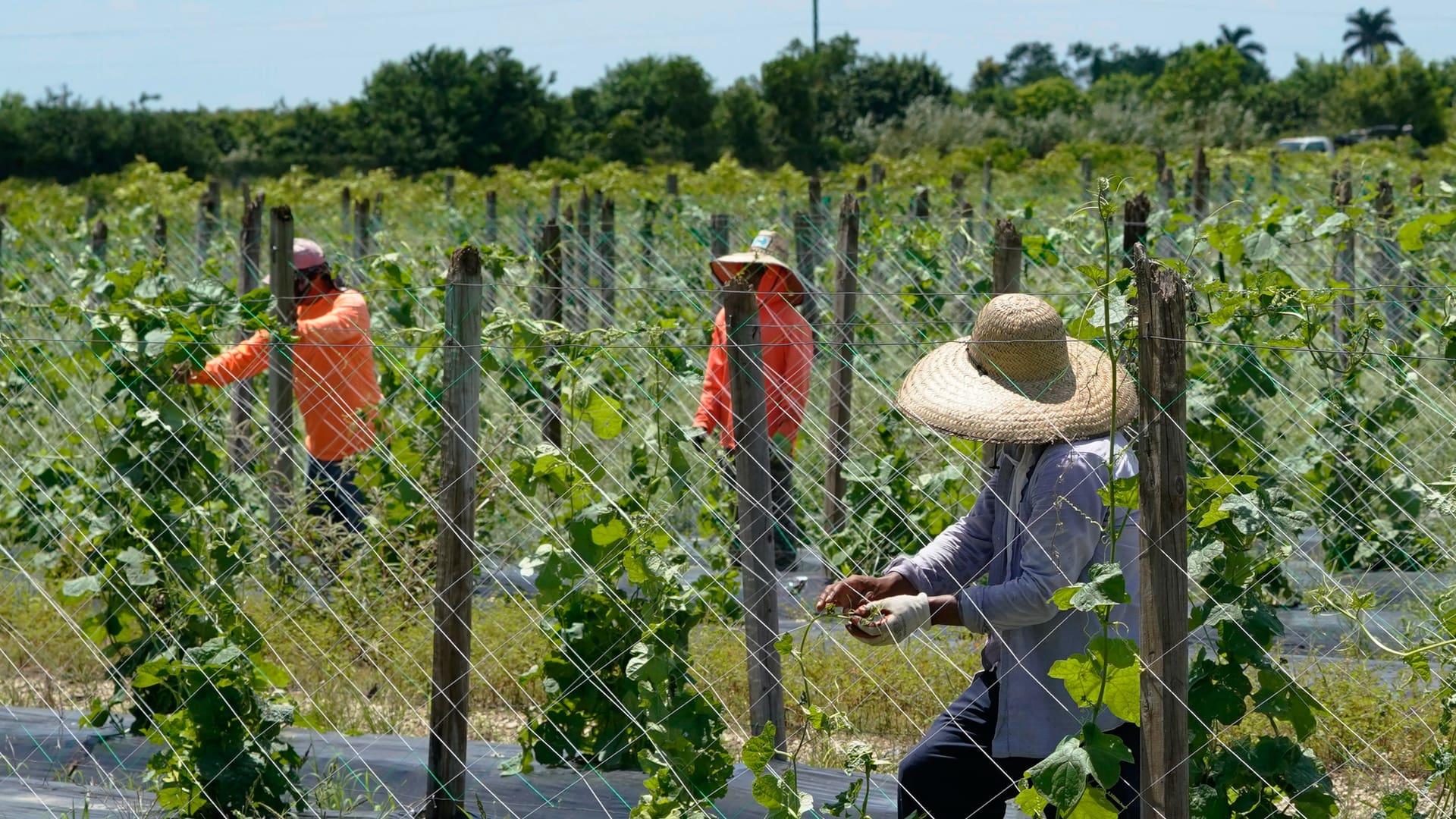For many in Florida’s vast immigrant community, daily life in recent months has become one governed entirely by fear.
Some try to drive as little as possible and make fewer trips to the supermarket. Others no longer take their children to the park and worry about allowing them to attend school. Others still are hiding out — avoiding travel to other states, not getting regular medical check-ups, or closing their businesses and leaving town. And many are just on high alert — all because of a new immigration law Republican Gov. Ron DeSantis signed in May.
One of the strictest in the nation, the law criminalized transporting immigrants lacking permanent legal status into the state, invalidated any U.S. government identification they might have, and blocks local governments from providing ID cards. Florida hospitals that receive Medicaid are now mandated to ask patients about immigration status. Businesses employing 25 or more must verify their workers’ legal status.
Other aspects of the law go into effect next year.
DeSantis, who is running for president, signed the bill in hopes of appealing to conservative voters and has criticized President Joe Biden’s administration for the massive influx of migrants at the southern border.
“You have a duty to ensure that these borders are secure,” DeSantis said at the time, signing the law a day before federal immigration rules enacted during the pandemic ended.
Since then, Associated Press interviews with a dozen immigrants found that daily routines have been upended for fear of being detained, separated from their families, and deported.
For one woman, who asked not to be identified for fear of being detained, the law has left her feeling like she traded one world of fear for another.
“I imagined that we were coming to the U.S. to have a better life, to be calmer, but that was not the case,” she said. “There is always the fear that something could happen to us.”
The 31-year-old single mother of four fled violent Honduras two years ago. She sought asylum and worked as a house painter to support her daughters and her mother, who still lacks permanent legal status after crossing into the U.S. illegally six years ago.
Before the new law, she said her mom helped out by driving grandchildren to school. Now, she fears police will detain and deport her for not having a driver license.
Florida is home to about 4.6 million foreign-born. Nearly three-quarters are from Latin America and the Caribbean. At least 825,000 lack permanent legal status, according to the most recent Pew Research Center survey from 2017. And about half of those people contribute to Florida’s workforce and economy in key industries including agriculture, construction, hospitality and more, according to the American Business Immigration Coalition.
“(The law) is impacting their ability to just go about their day like they used to,” said Shalyn Fluharty, an immigration attorney and executive director of the nonprofit law firm American for Immigrant Justice.
Experts like Fluharty characterize the law as vague and confusing. Her advice: If you are afraid, consult with a lawyer.
But not everyone can contact a lawyer.
Many have simply changed their way of living — even families of mixed legal status.
[read more]
Salvador Rosas, a 22-year-old college student, was born in central Florida along with his two brothers. He’s a citizen, but other family members are not. Their parents, who came from Mexico in 1999, and their grandmother, are living in the country illegally.
Before the new law passed, the family used to drive to Chicago to visit Rosas’ grandmother. Now, with fears of being detained and separated, Rosas’ parents and grandmother have canceled all travel plans.
Rosas’ and others’ fears are not unfounded — authorities are already enforcing the law.
A Mexican man who arrived in Florida a year ago was arrested last month while returning from a work trip to Georgia. The Mexican consulate told the AP that police stopped him for driving a van with too-dark window tints.
He was arrested and later charged with not having a valid driver’s license and multiple counts of smuggling “illegal individuals” into the state, according to a Florida Highway Patrol report and court documents. A police report showed that six other people were in the vehicle with the man, including a minor.
The man’s arrest echoes the experience of another immigrant who spoke with the AP.
A 45-year-old Mexican man, who asked he not be identified for fear of being deported, said a routine traffic stop in 2011 led to a monthlong detention and his later deportation for not having a driver’s license.
His wife was pregnant at the time and although he reunited with his family after crossing the border illegally five months later, he missed the birth of his second child.
After Florida’s law passed, he moved 1,500 miles northwest to Wisconsin with his wife and three children. He said he feels “comfortable, calm, more confident” in the Midwest state — a far cry from Florida, where he felt “anxious, pressured and afraid of any police.”
“I’m not going to leave my family alone,” he said. “I’ve been through that once.”
[/read]


